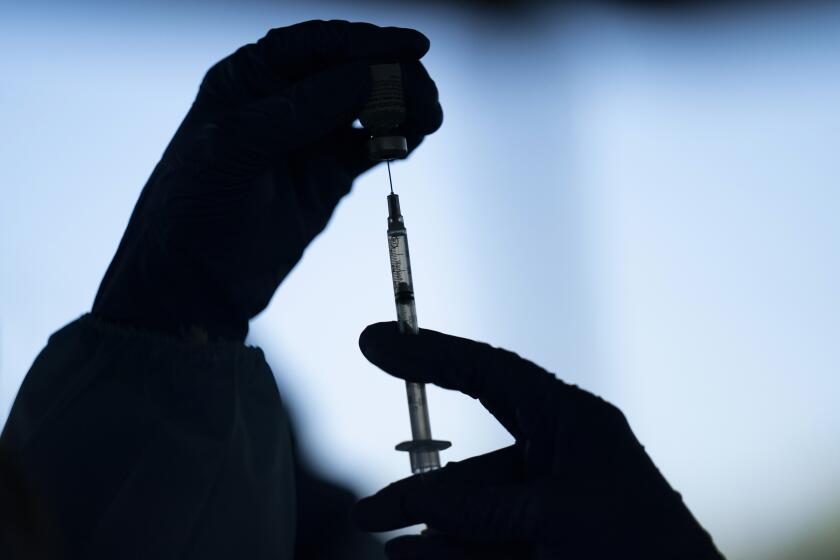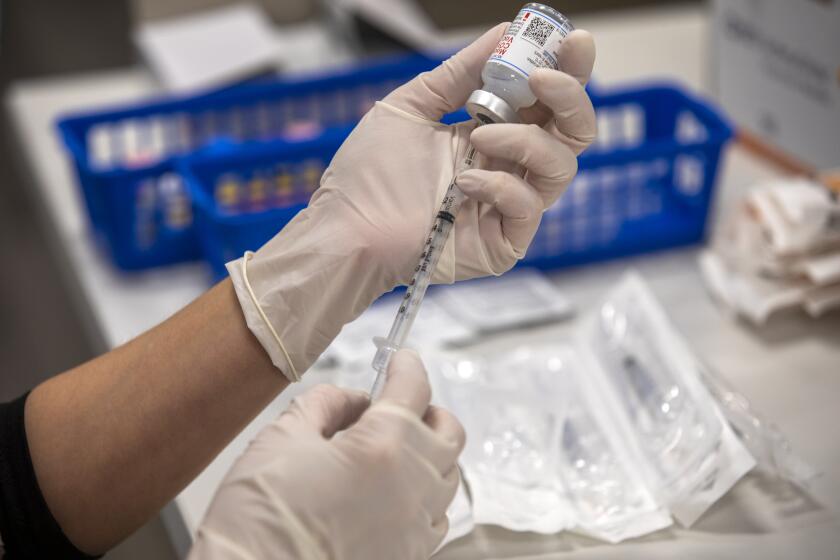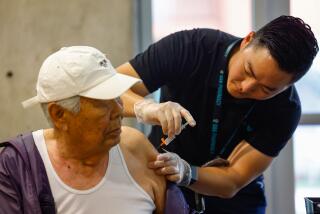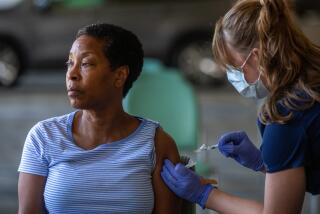Facing Omicron threat, CDC says all adults should get COVID-19 booster vaccine
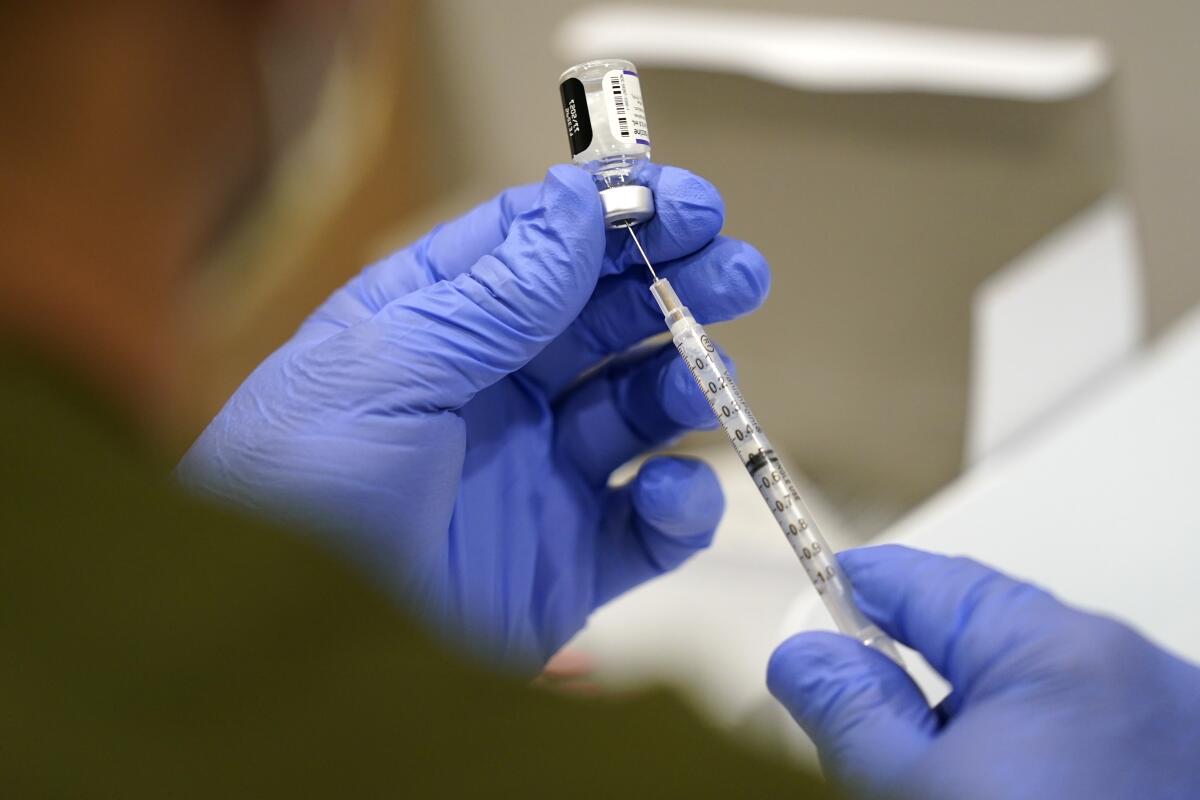
The U.S. Centers for Disease Control and Prevention on Monday strengthened its recommendations on who should get boosters.
In a statement, CDC Director Dr. Rochelle Walensky said that all vaccinated adults should get a booster as long as they received their second dose of the Pfizer or Moderna shot at least six months ago or they received their Johnson & Johnson shot at least two months ago.
“The recent emergence of the Omicron variant (B.1.1.529) further emphasizes the importance of vaccination, boosters, and prevention efforts needed to protect against COVID-19,” Walensky said. “Early data from South Africa suggest increased transmissibility of the Omicron variant.”
The CDC‘s previous guidelines, last updated Nov. 19, recommended booster shots for adults 50 and older, and made all younger, healthier adults age 18 to 49 eligible for booster shots but stopped short of recommending them. The agency’s newest recommendations — to urge boosters for all adults — is identical to the recommendations issued by the California Department of Public Health a week and a half ago.
The recent discovery of the Omicron variant of the coronavirus has upended the outlook for a pandemic that was expected to get worse over the winter.
The CDC’s previous, complicated stance came under criticism by some experts as still being overly confusing. Dr. Eric Topol, director of the Scripps Research Translational Institute in La Jolla, called the CDC’s earlier guidance issued in mid-November a “big mistake.”
While many people have spoken of the Delta variant as “a pandemic of the unvaccinated,” it’s also important to realize that those being infected now include vaccinated people whose immunity has waned, Topol wrote with Michael Osterholm, director of the Center for Infectious Disease Research and Policy, in an op-ed published in the Washington Post.
The percentage of vaccinated L.A. County residents who have gotten COVID-19 booster shots is much lower in poorer neighborhoods, health data show.
“Multiple studies have shown that fully vaccinated people can spread the Delta variant. This is more likely when the vaccine-induced immune response has faded,” Topol and Osterholm wrote. “Since booster shots strongly reduce symptomatic infections, they could help stem the increased spread that we are experiencing.”
The CDC’s move came three days after the World Health Organization identified a new variant in southern Africa as a “variant of concern,” calling it Omicron.
U.S. infectious disease experts have voiced concern about Omicron because its appearance in South Africa was accompanied by a big surge in coronavirus cases, following a time of low infection levels, suggesting that it is highly transmissible. It’s not clear, however, whether Omicron will overtake Delta as being the most transmissible variant of the coronavirus.
It’ll probably take two weeks to know whether the vaccines would be less effective against the Omicron variant. Lab tests are underway. Still, Dr. Anthony Fauci, President Biden’s chief medical advisor for the pandemic, “continues to believe that existing vaccines are likely to provide a degree of protection against severe cases of COVID,” the White House said in a statement.
“I don’t think there’s any possibility that this [Omicron variant] could completely evade any protection by a vaccine. It may diminish it a bit, but that’s the reason why you boost,” Fauci said in an interview on ABC.
Fauci reiterated that booster shots for fully vaccinated individuals provide the strongest available protection against COVID-19 and that it’s important that anyone who is unvaccinated — including children 5 and older — get their shots.
During a briefing Monday, Biden characterized Omicron as “a cause for concern, not a cause for panic.”
The recent discovery of the Omicron variant of the coronavirus has upended the outlook for a pandemic that was expected to get worse over the winter.
“The best protection against this new variant — or any of the variants out there, the ones we’ve been dealing with already — is getting fully vaccinated and getting a booster shot,” he told reporters.
Biden said he’d be releasing a detailed strategy later this week detailing the winter battle plan against COVID-19 — “not with shutdowns and lockdowns, but with more widespread vaccinations, boosters, testing and more.”
“We’ve moved forward in the face of COVID-19. We have moved forward in the face of the Delta variant, and we move forward now in the face of the Omicron variant, as well,” the president said.
According to the California Department of Public Health, Omicron “has many mutations in important areas of the virus that impact infectiousness and the ability for immune systems to protect from infection. Some of the mutations are concerning to scientists because they are very different from other variants previously detected, and some are similar.”
“We do not know at this time if this new variant causes more severe COVID-19 illness than other variants or how it might impact response to treatment,” state health officials wrote.
Biden said Monday that his administration is already working with pharmaceutical companies to formulate updated vaccines if necessary. However, he emphasized, “we do not yet believe that additional measures will be needed,” adding that he has no plans for new restrictions on travel or businesses.
Officials for Pfizer and Moderna told CNBC on Monday that work is underway for vaccine versions specifically designed to deal with Omicron. Such a vaccine would take a few months to develop, but it’s not a certainty it would be needed.
New versions of COVID-19 vaccines were developed specifically for the Beta and Delta variants but were never released publicly because initial vaccination formulas retained their effectiveness against those variants.
The potential threat posed by Omicron further underscores the importance of both vaccinating as many people as possible and ensuring adults get their booster doses as soon as they are eligible, Los Angeles County health officials said.
“Since transmission remains substantial across the county, this additional boost makes a difference,” Public Health Director Barbara Ferrer said in a statement.
In L.A. County, 98% of skilled nursing facilities have administered booster doses to residents and staff members between mid-October and mid-November. In that time period, there was a 63% drop in new coronavirus cases in skilled nursing facilities; countywide, new cases fell by only 6% during that time.
“Clearly boosters, along with very high vaccination coverage with two doses among staff and residents, make a difference,” Ferrer said.
At skilled nursing facilities in L.A. County, 96% of staff members and 90% of residents are fully vaccinated. All skilled nursing facility staff were required to be fully vaccinated by the end of September under a state health officer order.
More to Read
Sign up for Essential California
The most important California stories and recommendations in your inbox every morning.
You may occasionally receive promotional content from the Los Angeles Times.
